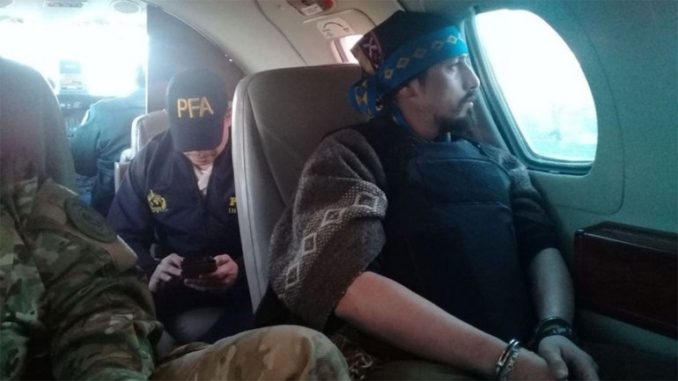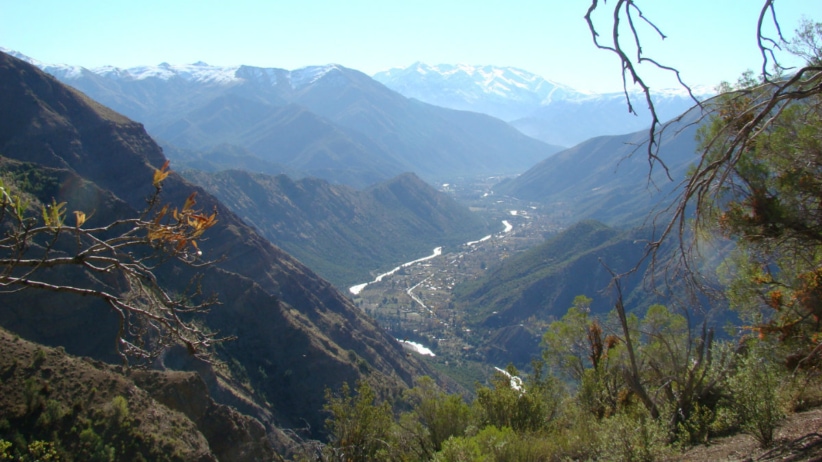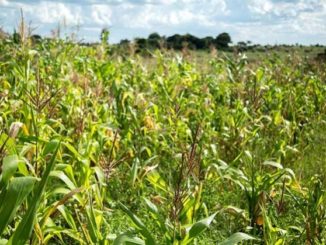
SANTIAGO – Facundo Jones Huala, founder of the Mapuche Ancestral Resistance (RAM), has been transferred from the city of Esquel, in the Patagonian province of Chubut, to Santiago de Chile, where he will be brought to a Valdivia court later this week on charges of arson and public incitement.
Despite requests from the United Nations Human Rights Committee to postpone the trial, the Lonko, or Indigenous chief, was extradited by Argentine Federal Police Tuesday evening after being held for 13 months.
Huala is accused in Chile of having participated in the burning of a property inside the Pisu Pisue farm, near Valdivia, on January 9, 2013. The other defendants were Tito Cuñulef, Alex Bahamondes, Fenni Delgado Ahumada, Cristian García Quintul and the machi Millaray Huichalaf.
According to reports, Jones participated in a raid on a farm in 2013, assisted in setting fire to the property and was found in possession of a firearm. Six others were arrested but later released for lack of evidence.
Argentinian judge decides to extradite Mapuche leader to Chile
However, Jones and Machi Millaray Huichalaf escaped to Argentina shortly after the incident and refused to respond to the Chilean court summons.
The defense of Jones Huala had resorted in recent days to the Human Rights Committee of the United Nations to request his intervention in the case.
In that instance, the rapporteurs of the Committee, Sarah Cleveland and Oliver Defrouville, said in an opinion that they had asked the Argentine State to suspend the extradition while analyzing the legal situation of Huala.
During his detention, the Mapuche leader went on a 20-day hunger strike because he was not allowed to celebrate the New Year of his indigenous community. Since last July, he was in house arrest at his grandmother’s house in Esquel.
The Mapuche Indigenous group has been discriminated against in both Argentina and Chile.
Pinochet’s granddaughter ordered to return land to Chile’s Mapuche
Living mainly in Chile’s Temuco region, Mapuche have been battling the government as they try to regain land lost during Chile’s 19th-century expansion southward into Mapuche-held territory.
Meanwhile, in Argentina, territorial rights have fueled numerous movements and unjust state repression in the Patagonia region.



